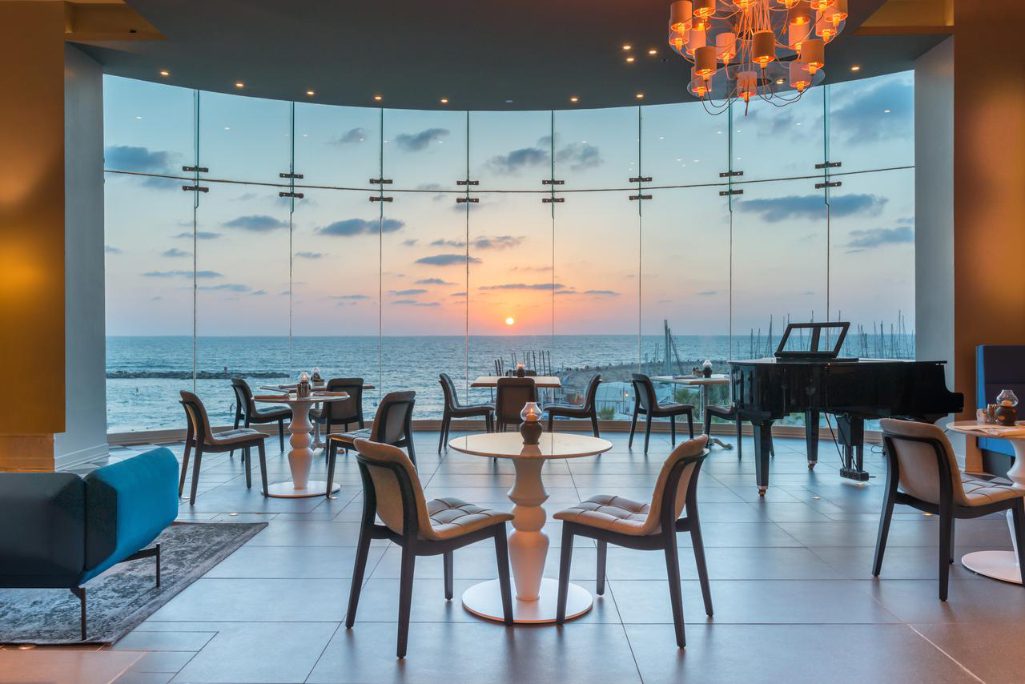How an Israeli Startup Wants to Help Hotels Up Their Online Booking Game During Crisis

Skift Take
Splitty, a Tel Aviv-based startup, has been telling hotels it knows how to raise their online booking game while boosting guest satisfaction. For a year-and-a-half, Splitty has been knitting together different reservation types to build the cheapest deals for consumers. But the company has had next-to-no marketing savvy and has remained a niche brand.
To help overcome its marketing gap, Splitty recently acquired the assets of Cancelon, a Boston-based company. Cancelon processed a half-a-billion dollars in hotel bookings last year thanks to its digital marketing chops. But pandemic-related losses bankrupted it in March.
The scale of the companies, which are both small, is less impressive than what the merger reveals about guerrilla marketing tactics in online travel.
Most price-comparison search companies, such as Google, Kayak, Trivago, and TripAdvisor, typically put their thumb on the scale in their ad auctions to favor an online travel agency quoting the best hotel rate. They do this even if the company lacks a big budget and can't afford to spend more than giants like Booking Holdings or Trip.com Group.
Join Us For Our Skift Global Forum Online Conference September 21-23
For example, Google gives prominence in its so-called metasearch results for hotels to the distributor or supplier that offers the lowest rate, experts said.

The Splitty team in Tel Aviv. Source: Splitty
Google often sets a minimum bid it will accept for top slots in its rankings. Think of this minimum-acceptable bid as a floor. Google would lower the floor for an agency with the cheapest room rate.
Ad auctions at Google and elsewhere are in reality more complicated and mysterious than that picture. They weigh other factors, such as the value of bids related to how much everyone is bidding, the time of day, a shopper's location, the rates in question, and other factors.
But experts said that as a general rule, when a sales channel like Cancelon has a low hotel rate, Google or a similar metasearch brand might offer it, say, the third position in its mobile search results for only, say, $1.40 per click. Yet in the same list, it might expect a corporate advertising colossus to bid $2 to appear in the first slot.
Cancelon became good at guessing when metasearch ad auctions presented higher-than-usual chances of getting the best average return on the company's digital marketing budget. It perfected a kind of ad auction arbitrage.
Having acquired that savvy, Splitty hopes to apply those techniques to help juice sales under its brand. It will take until October to set up, said Eran Shust, CEO and co-founder of Splitty.
The Under-booking Crisis
Splitty has stood out from typical online travel services by offering "mixed rate" hotel deals. When a traveler seeks a booking across multiple days at the same property, Splitty pieces together a mix of rate types from one or more sources, which the consumer can book with one voucher. It claims it can provide offers for about a half-million properties worldwide.
"Without going into IP [intellectual property] issues, there's lots of technical abilities you can create via distribution tools like channel managers or via direct connection with hotel group systems," Shust said. "These connections can done almost always without the need of human involvement."
Splitty claims consumers or hoteliers only turn to its customer service for exceptional circumstances, mix-ups, or other confusion in two out of every hundred bookings, on average.
Earlier this year, Splitty opened its first U.S. office, located in Greenwich, Connecticut, after the company received backing by Connecticut Innovations, the state's strategic venture capital arm.
Splitty has disclosed $10 million in fundraising to date led by Fosun RZ Capital, an investment arm of the Chinese company that owns Club Med and other tourism companies. Other investors have included Techstars Ventures, Cockpit Innovation (El Al Airlines' investment arm), and 2b Angels.
In many markets and types of properties, the hotel sector faces a crisis in vacancies due to stay-at-home restrictions, border restrictions, and confusing signals by authorities.
Given that hotels face what you might call an "under-booking" crisis, or the inverse of overtourism, many might welcome any tool that can help put heads in beds affordably. (For context, see "New York City’s Hotel Woes Checked In Long Before Coronavirus.")
But not everyone is convinced at the durability of the concept of split rates.
"From a revenue manager's perspective, while for sure today hotels are looking for occupancy any way they can get it, I think a company like Splitty could be dangerous for long term profits, certainly," said Kelly McGuire, managing principal of hospitality for ZS. "Customer confidence and value perceptions must also be considered with this or any other deal-seeking, third-party app."
"From a customer perspective, despite best available rate guarantees, customers already are skeptical that they get the best price by booking direct," McGuire said. "Here might be yet another channel that exposes inconsistent rates to the consumer, many of which probably weren't supposed to be available on the open market — or weren't supposed to be booked the way this app might book them. All of this risks eroding confidence in pricing on the hotel's direct channel."
Splitty's Shust has heard similar critiques before. He claims that hotels will like how his company puts together combinations that grow what he claims is incremental demand that their technology can't yet create. Shust cites examples of a multi-day booking where breakfast is included only on the first day and a multi-day booking during a peak demand period where a guest moves between a premium class room one night and a budget-priced room during the rest of the time.
Splitty is considering adding to its mix of products Cancelon's signature of letting consumers "resell" their non-refundable reservations but not until next year if it all.
Critics argue that such businesses are stuck in a wretched middleman position getting only a cut of a cut of commissions because of their dependence on other sources for supply and demand. These niche services risk a long-term struggle.
A case in point is Tripadvisor-owned Tingo, a brand that had let customers track rates and rebook them if they dropped. Tripadvisor closed Tingo last year. Cancelon rival Roomer has raised $17 million to date but has yet to become a household name. On the other hand, startups like Airbnb, Hotel Tonight, and Hopper show that paths to global scale can be found.
Register Now For Skift Global Forum, Happening Online September 21-23





